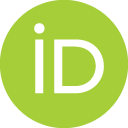Introduction¶
Aim¶
The Guidelines provide orientation for CRIS managers to expose their metadata in a way that is compatible with the OpenAIRE infrastructure as well as the European Open Science Cloud (EOSC). These Guidelines also serve as an example of a CERIF-based (Common European Research Information Format) standard for information interchange between individual CRISs and other research e-Infrastructures.
By implementing the Guidelines, CRIS managers support the inclusion of metadata from their systems in the OpenAIRE Research Graph and related services. For developers of CRISs and other research e-Infrastructures, the Guidelines offer orientation on supporting the interoperability of research information.
The Guidelines support the interchange of information about research outputs (including publications, patents, research datasets and research software), about research projects and their funding, about actors in research (both persons and organizations, including organization units), about events and about instruments or other equipment.
The 1.2.0 release of the Guidelines extends the set of information that can be interchanged, incorporates updated versions of related semantic vocabularies and finetunes several details of the information exposure.
CERIF-CRIS¶
CERIF (Common European Research Information Format) is a standard data model for research information and a recommendation by the European Union to Member States. The care and custody of CERIF was handed over by the European Union to euroCRIS (https://eurocris.org), a not-for-profit organisation dedicated to fostering cooperation and knowledge-sharing across the research information community and promoting interoperability of research information through the CERIF standard.
In addition to a domain model and a formal data model, CERIF includes a mechanism to construct XML profiles (specialized subsets) for specific information interchange scenarios. The OpenAIRE profile of CERIF defined in these Guidelines supports harvesting and importing metadata from CRIS systems.
Compliance to the FAIR Principles¶
The compliance of these Guidelines to the FAIR Principles has been studied and is documented in a separate report. [1]
Footnotes
| [1] | Czerniak, A.; Dvořák, J.; Schirrwagen, J.; Ivanović, D. (2023). Compliance of the OpenAIRE Guidelines for CRIS Managers v1.1.1 with the FAIR Principles (1.0). Zenodo. https://doi.org/10.5281/zenodo.6627245 |
Acknowledgements¶
 0000-0001-8985-152X
0000-0001-8985-152X 0000-0003-3883-4169
0000-0003-3883-4169 0000-0002-9942-5521
0000-0002-9942-5521 0000-0002-9029-1854
0000-0002-9029-1854 0000-0003-1143-2645
0000-0003-1143-2645 0000-0002-0458-1004
0000-0002-0458-1004 0000-0002-5277-285X
0000-0002-5277-285X 0000-0001-7941-8108
0000-0001-7941-8108 0000-0003-1106-8441
0000-0003-1106-8441 0000-0002-5468-401X
0000-0002-5468-401X 0000-0001-8683-6156
0000-0001-8683-6156 0000-0003-3601-8360
0000-0003-3601-8360Versions¶
- 1.2.0, June 2023, doi:10.5281/zenodo.8050936
- 1.1.1, December 2018, doi:10.5281/zenodo.2316420
- 1.1.0, June 2018, doi:10.5281/zenodo.1298650
- 1.0, June 2015, doi:10.5281/zenodo.17065
List of changes in the 1.2.0 version (since 1.1.1)¶
- The Medium CERIF entity is brought into the profile to represent locations of files. It is never used as a top-level entity, so it does not have its own OAI-PMH set. (#59)
- The COAR Resource Types controlled vocabulary is upgraded to Version 3.1. (#99 and #143)
- The COAR Access Types controlled vocabulary is upgraded to Version 1.0. (#86)
- Support for generic Person Identifier:s is added. (#91)
- Some constraints in structured Person Identifiers:s were expanded. (#146 and #154)
- Support for structured OrgUnit Identifiers:s is added. (#64)
- The meaning of date fields in Patent:s is clarified. (#88)
- ZDB-ID is added among structured identifiers for Publication:s (#66)
- GrantDOI is added as a structured identifier for Funding.
- Unmanaged entities are allowed without an Internal Identifier attribute. (#56)
- The
xml:langattributes are no longer required. (#61) - DataCite Metadata Kernel Dates are supported in the Product (#84) and Medium (#150) entities with a common DatesStructure__Group.
- The use of SPDX License URIs is recommended. (#134)
- The rules for constructing the OAI identifiers have been relaxed (#126, #85)
- Examples were added, documentation has been improved. (#65, #83, #88, #97)
- Other minor extensions and cleanup.
List of changes in the 1.1.1 version (since 1.1.0)¶
- Digital Author Identifier (DAI) is added as a person identifier type. (#49)
- Multiple person identifiers of the same kind are allowed: where ambiguous or uncertain information is available, it should be listed in
<AlternativeXXX>elements (where XXX is the identifier type). (#48) - Multiple parents of an OrgUnit are allowed so that e.g. interdisciplinary research centres can be represented faithfully. (#45)
- The
xmlns:cfprocessdeclaration was removed where it was not needed. (#43) - The upstream development of CERIF XML introduced changes in the
includes/cerif-commons.xsdschema component. - Cached Schematron schemas are now being taken from a more authoritative source.
- The documentation was improved regarding the precision of date/datetime fields (#47), regular expression constraints in the XML Schema (#50) and the DisplayName feature (#52).
- The official location of the XML Schema files is now at https://www.openaire.eu/schema/cris/1.1/ (#51)
Feedback¶
We welcome your comments and suggestions. Please see https://github.com/openaire/guidelines-cris-managers#contributing